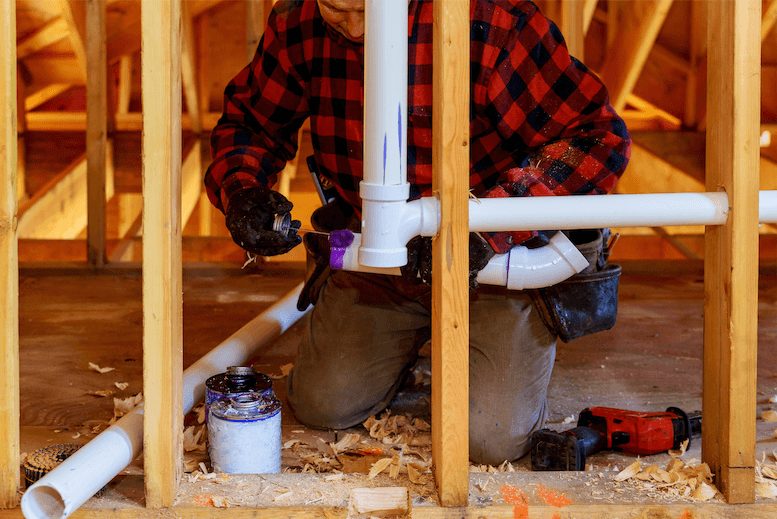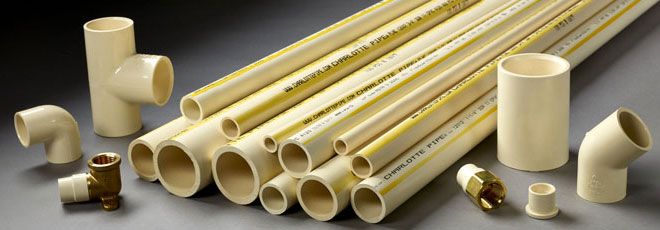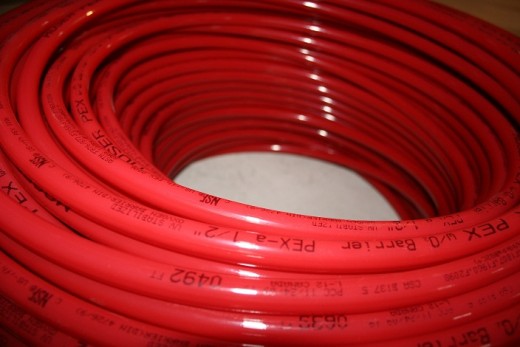
A home inspection covers areas such as the exterior of a home, pool, roof, bathrooms, and plumbing to name a few of the long list. Plumbing systems are important in the home and used in our everyday life so we need to make sure it is working well. They are often in areas that can’t be seen with the naked eye so it is a good idea to have an inspector look at the plumbing system when buying a house or in new construction.
Whether you have new construction or live in an aging home, there are three types of materials most widely used in plumbing systems: Copper, CVPC, and PEX. How do you choose which is best? Let’s take a look…
Copper
Copper is the oldest of all of the plumbing system materials and can last 75-100 years. There are pros and cons to using copper.
Pros of Using Copper in Plumbing Systems
Copper was the most used material for pipes from the 1950’s to 2000 because of its quality. It is durable, lasts many years and is non-permeable. Copper is also a natural material and relatively non-toxic as well as environmentally friendly and resistant to bacteria. It can withstand hot and cold temperatures, which makes it good for water to flow through at ease. Copper is the only material out of the three that can be used outdoors.
Con’s of Using Copper
Copper pipe is labor-intensive, expensive and takes skill to replace as it requires soldering. These pipes range from $2-$8 per linear foot and price depends on the diameter of the pipe. Copper fittings are difficult and expensive to do on your own unless you have the right tool. However, in order to do this, a propane torch must be used and this is a fire hazard.
If you do decide to solder the pipes, check out this site for help. Another concern is copper can develop pinhole leaks, which can be disastrous in a home and is susceptible to corroding. Copper holds a high scrap value and is stolen from job sites, however, it is a long-lasting good material to use.
CPVC Use in Plumbing Systems
CPVC pipe has been around since the 1960’s and has a lifespan of 50-75 years. This durable and chlorinated PVC pipe is the most common repiping used in homes today. In addition, many new construction homes choose to use it for the reasons below.
Pros of CPVC
CPVC has chlorine added to it and it makes it fire and corrosion-resistant. It is much cheaper than copper, is tough, doesn’t rust and has some flexibility. It costs about $4.50 per foot (depending on the store) and doesn’t have scrap value so it is safer to leave lying around or on a job site. CPVC comes in a wide range of sizes and has a universal fitting for many pipes.

Cons of CPVC
It is hard to find disadvantages of using CPVC, but the biggest complaint is it can become brittle and crack. Climate can also be an issue. If it freezes or the water has chlorine in it, the pipes can crack.
Cross-Linked Polyethylene, or PEX Use in Plumbing Systems
PEX has been around since 1972 and has a minimum of 50 years of life. Many experts believe it can last as long as 75-100 years. In pricing, it is in between PVC and Copper.

Pros of PEX pipe
PEX pipe is joined together with fittings, rings, and clamps, and does not need glue or soldering; like the other two types of plumbing mentioned. It is very flexible, can easily go through walls, and can easily withstand extreme hot and cold temperatures. The cost is $42 per hundred feet.
Cons of PEX Pipe
This type of piping is for use indoors only and may leave an odd odor or taste in drinking water. In addition, the UV sunlight can cause eroding so storing it outside is not a good idea.
Conclusion
Check with plumbers in Indian River and Brevard Counties to see what type of material they recommend for plumbing. Many plumbers will have their own preference, depending on what they know how to install and what they are familiar with. Also, new construction may use the same type of plumbing for all the homes in the same neighborhood. Matt Resinger from “Build with Matt Resinger” compared the three plumbing materials and says that in Texas, they use PEX as the cost is low and the material seems to last a long time. You can also read more about PEX here.
If you have questions about plumbing materials or need your plumbing system inspected, please contact us at Fogarty.

